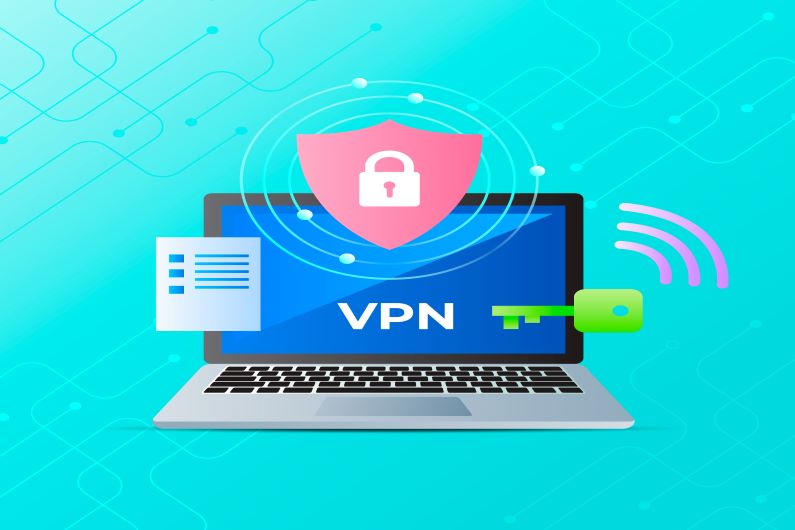Securing data using a virtual private network (VPN), is important in the translation industry.
Digital technology has made communication services easier to provide and access on a global scale.
For translators, these tools have allowed language and interpretation experts to localise messages, media and content for business people and media audiences in their home language, sometimes in real time.
As beneficial as this can be, one of the drawbacks is that supplying services using the internet can be fraught with security risks.
It can be a major disadvantage for translators, handling private data and even processing online payments for their services.
Fortunately, VPNs were created as a solution to address many of these concerns.
Thus, if you work in translation and interpretation, here’s how VPNs can be an advantage to your service.
Network Security
Privacy and anonymity are key factors in why working professionals choose to use VPNs. They are also crucial for translators involved in exchanging crucial language information during international conflicts and civil unrest with the outside world.
They can interpret, translate, dub, and send written accounts to journalists, news media, criminal courts, and military allies that influence political outcomes.
VPNs are also useful for translators who work for international organisations that need real time translation using earpieces and live-streaming media.
In this case, VPNs for Kodi can be used to access and translate across live media without slowing down internet speeds.
Just as important, VPN’s privacy can prevent them from being traced later as it won’t collect and store browsing information.
Thus, VPN obscurity can keep them safe and allow them to continue providing translations.
Bypass Geo-blocking
As a translator, providing services across different cultures and countries, it’s essential for their income to remain accessible to clients around the world.
However, this isn’t always the case, as many find themselves unable to create profiles on freelance job boards because they’re blocked or restricted within a specific region.
Additionally, many websites with language knowledge and online resources that translators need to access for research purposes might also be blocked.
Many companies do this to comply with legal contracts and copyright laws in their country.
This is where VPNs can be beneficial to translators.
These virtual private networks have the ability to mask an IP address and bypass this geo-blocking, as the real location can’t be identified by the website they’re trying to access.
Thus, with the location changed to a permitted region, they’ll be able to advertise their services and reach clients anywhere in the world.
Prevent Data Breaches
Many freelance translators often work with companies that need sensitive and non-disclosed data and information translated for business purposes.
These could be commercial translations for global financial and trade institutions, pre-patented product information or government and diplomatic intelligence that needs translating from one language to another.
For translators to provide their language services, this sensitive information needs to be transferred digitally through file sharing.
However, this poses a big security risk.
For this reason, translators should ideally use a VPN to secure the network and encrypt data.
This is especially necessary if translators send and receive information from unsecured public network access points.
VPNs are therefore a useful protective measure to safeguard against potential cybercriminals who could attempt to hack the network, plant malware or breach data.
The VPN can then scramble the data so that it can’t be decoded, keeping it discrete.
In any case, you can use a data breach tracker and control the information to stay secure.
Accessibility When Travelling
Translators often have to travel abroad to provide in-person services for multilingual people and events.
As such, they need to take digital devices with them to work on, such as smartphones, tablets, and laptops.
The one issue with this is that when translators access accounts from different regions, it could be picked up and flagged by security monitoring software from banks, internet browsers, company websites, and the digital device itself.
This could be marked as suspicious activity and make it difficult and frustrating to access necessary accounts.
Thus, when using a VPN during travel, translators can avoid being locked out of corporate profiles such as cloud storage data that use authorisations necessary for doing their job overseas and any other remote working areas.
The VPN can set your location connection to your regular home address to prevent any security warnings from popping up.
Conclusion
VPNs offer immense benefits for translators who use the internet to provide their service. These private networks are useful for data privacy and encryption, corporate information and network security, anonymity, and easier accessibility when travelling.
Their use to generate a private network connection has assisted workers in the translation and interpretation industry in conducting their work in a safer online environment.
Additionally, they give freelance translators better opportunities to acquire more international clients and cultural insights for language accuracy and knowledge building that would’ve otherwise been restricted to them.
These are the key reasons why VPNs are essential to the translation service industry.






